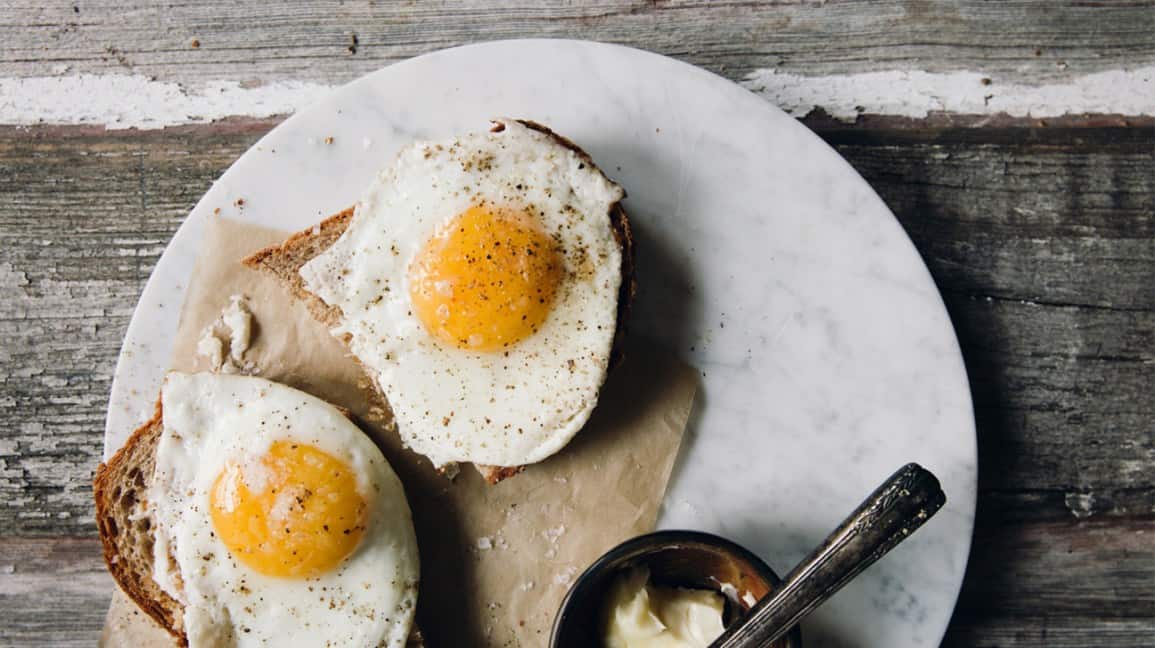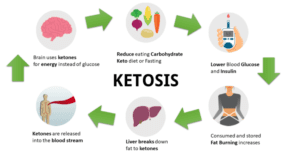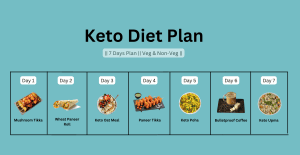Eggs ideal food for the keto diet. Eggs are one of the healthiest foods on the planet and the staple food of Keto. Given the strict and restricted prerequisites to fit into a Keto diet, the egg is one such food that fulfills all norms, namely, low carbs and high fats, a rich source of protein, and other essential nutrients. Eggs on Keto are a big yes-yes!
Nutritionally speaking, one large egg contains less than 1 gm of carbs, 5 gms of fat, and around 6 gms of protein. This nutrient profile is ideal for a ketogenic lifestyle.
EGG NUTRITION
| NUTRIENT | BENEFIT |
| Iron | Carries oxygen to the cells helps prevent anemia |
| Vitamin A | Helps maintain healthy skin and eye tissue; assists in night vision |
| Vitamin D | Strengthens bones and teeth; may help protect against certain cancers and auto-immune diseases |
| Vitamin E | An antioxidant that plays a role in maintaining good health and preventing disease |
| Vitamin B12 | helps to keep the body’s nerve and blood cells healthy, protects against a type of anemia |
| Folate | Helps produce and maintain new cells; helps prevent a type of anemia, and helps protect against serious birth defects if taken prior to pregnancy and during the first 3 months of pregnancy |
| Protein | Essential for building and repairing muscles, organs, skin, hair, and other body tissues; needed to produce hormones, enzymes, and antibodies; the protein in eggs is easily absorbed by the body |
| Selenium | Works with vitamin E to act as an antioxidant to help prevent the breakdown of body tissues |
| Lutein and zeaxanthin | Maintains good vision; may help reduce the risk of age-related eye diseases, such as cataracts and macular degeneration |
| Choline | Plays a strong role in brain development and function |
ARE EGGS HEALTHY?
One egg has about 75 calories, 5 grams of fat, 6 grams of protein, 0 grams of carbs, 67 milligrams of potassium, 70 grams of sodium, and 210 milligrams of cholesterol, according to the nutritional breakdown. A, D, and B vitamins, as well as the mineral choline, which is necessary for numerous metabolic processes, are also abundant in eggs. One egg is a healthy choice for breakfast, lunch, or dinner, with the exception of its high cholesterol level.
Compared to other sources of cholesterol, research indicates that the cholesterol in eggs doesn’t appear to have a harmful effect on the human body. For instance, foods like bacon, cheese, and butter that are heavy in cholesterol, saturated fat, and salt are frequently consumed with eggs.
These foods should only be consumed in moderation as they are known to raise the risk of heart disease.
Most heart-healthy persons can have up to seven eggs each week without experiencing any negative effects. Some people opt to solely consume egg white, which offers some protein without the cholesterol and avoids the yolk.
BENEFITS OF EGG ON KETO DIET
- Eggs are rich in protein with a complete amino acid profile. Amino acids are required by the body to build its proteins.
- They are known as the best sources of protein. Protein-rich foods help in building muscle mass, promote a feeling of fullness, reduce hunger pangs and help in achieving weight loss.
- Eggs can help you reduce appetite and thus lessen the food intake which is one major norm of the Keto diet.
- They are a rich source of Vitamin D thus a great source of protein for those suffering from vitamin deficiency. Vitamin D deficiency increases the risks of depression, prostate cancer, dementia, and cardiovascular disease.
- Studies show that egg yolks are one of the richest sources of dietary cholesterol among all foods. One large egg has 186 milligrams of dietary cholesterol in the yolk.
- Eggs can help with eye problems as they contain lutein, a yellow pigment that is concentrated in the retina of the eye.
- They are a rich source of Vitamin D thus a great source of protein for those suffering from vitamin deficiency. Vitamin D deficiency increases the risks of depression, prostate cancer, dementia, and cardiovascular disease.
- It promotes belly fat loss very rapidly.
- Eggs are Protein-rich foods that help in building muscle mass, promote a feeling of fullness, reduce hunger pangs and help in achieving weight loss.
- Special vitamins and minerals present in eggs help to promote healthy skin and prevent the breakdown of body tissues.
- It can reduce insulin resistance in the body thus preventing blood level fluctuations in type 2 diabetes.
- It triggers the happiness hormone in the body and cures anxiety, stress, and depression.
- Helps to keep the blood sugar level in control.
HOW TO CONSUME EGGS ON A KETO DIET:
- Whole eggs — egg yolks and egg whites are the main sources of fat and protein. If anyone is allergic to any of these, they can refrain from eating the egg yolk.
- One must consume 1 tablespoon (15 grams) of butter or healthy fat per egg consumed to balance the diet.
- You can eat a whole egg within 30 minutes of waking up to keep the metabolism balanced.
- One must eat an egg-based meal every three to five hours to avoid indigestion or constipation.
- Eat a meal even if they are not hungry to keep the egg count ticking.
- One can eat up to 1 ounce (28 grams) of full-fat cheese per egg consumed.
- One can/must eat at least six whole eggs per day.
- Use local, pastured eggs whenever possible.
- One should stop eating three hours before bedtime irrespective of the diet.
Some Easy Keto Recipes With Eggs
- Keto Deviled Eggs
- Keto Frittata Recipe
- Keto Custard Recipe
- Keto Quiche Recipe
- Keto Custard Tart
- Keto Pavlova
- Keto Egg Zucchini Fritters
- Keto Omelet Recipe
- Keto Garlic Aioli Recipe
- Keto Indian Boiled Egg Curr
- Keto Mushroom and Bacon Omelet
- Keto Egg Salad
- Keto Spanish Eggs Recipe
- Keto Egg Wraps
- Keto Egg & Cheese Fritters
- Keto Caesar Sauce
- Keto Cauliflower Egg Latkes Recipe
- Keto Scrambled Eggs
- Keto Whole Egg Mayonnaise Homemade
- Keto Egg Muffins Recipe
Understanding Eggs And Cholesterol
A soft, waxy substance known as cholesterol is produced naturally by our bodies and is also present in many of the foods we consume. Cholesterol is essential for several bodily processes, including the production of hormones, bile acids, and vitamin D. Meat, dairy products, egg yolks, and shellfish are foods that contain cholesterol; a big egg has 200 mg of cholesterol.
The amount of cholesterol that circulates in the blood is expertly controlled by the body. Your body creates less cholesterol to make up for the amount of cholesterol you consume through diet. However, when you consume less cholesterol from food, your body makes more cholesterol to make up for it.
This is why, for the majority of individuals, the cholesterol in our diets has little effect on the levels of cholesterol in our blood.
Recent studies have shown that including eggs in a heart-healthy diet does not raise the risk of developing heart disease. The Canadian Cardiovascular Society, the Heart and Stroke Foundation, and Diabetes Canada do not recommend a milligram limit on dietary cholesterol for healthy individuals in their most recent dietary recommendations.
Get yourself started today and Stay tuned for more such keto weight loss journeys, health content, and recipes! Also, don\’t forget to follow us on Instagram for the daily dose of the Keto Lifestyle!










